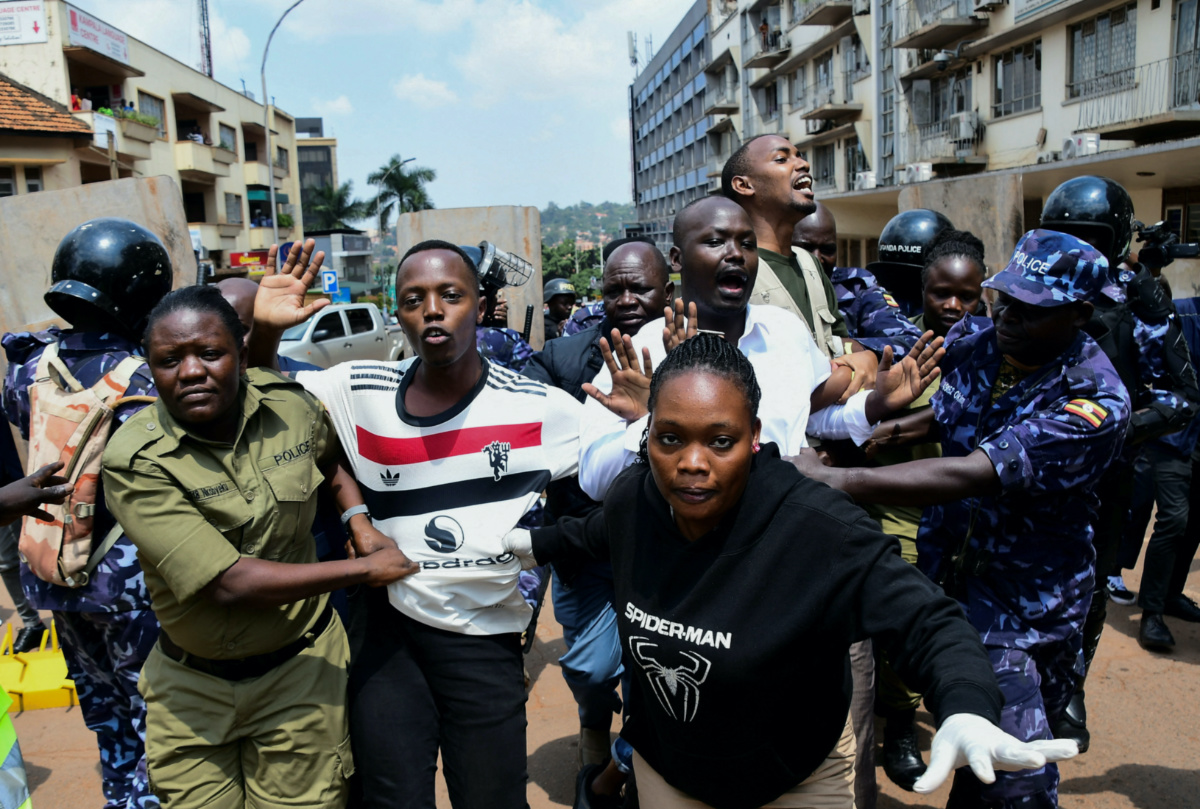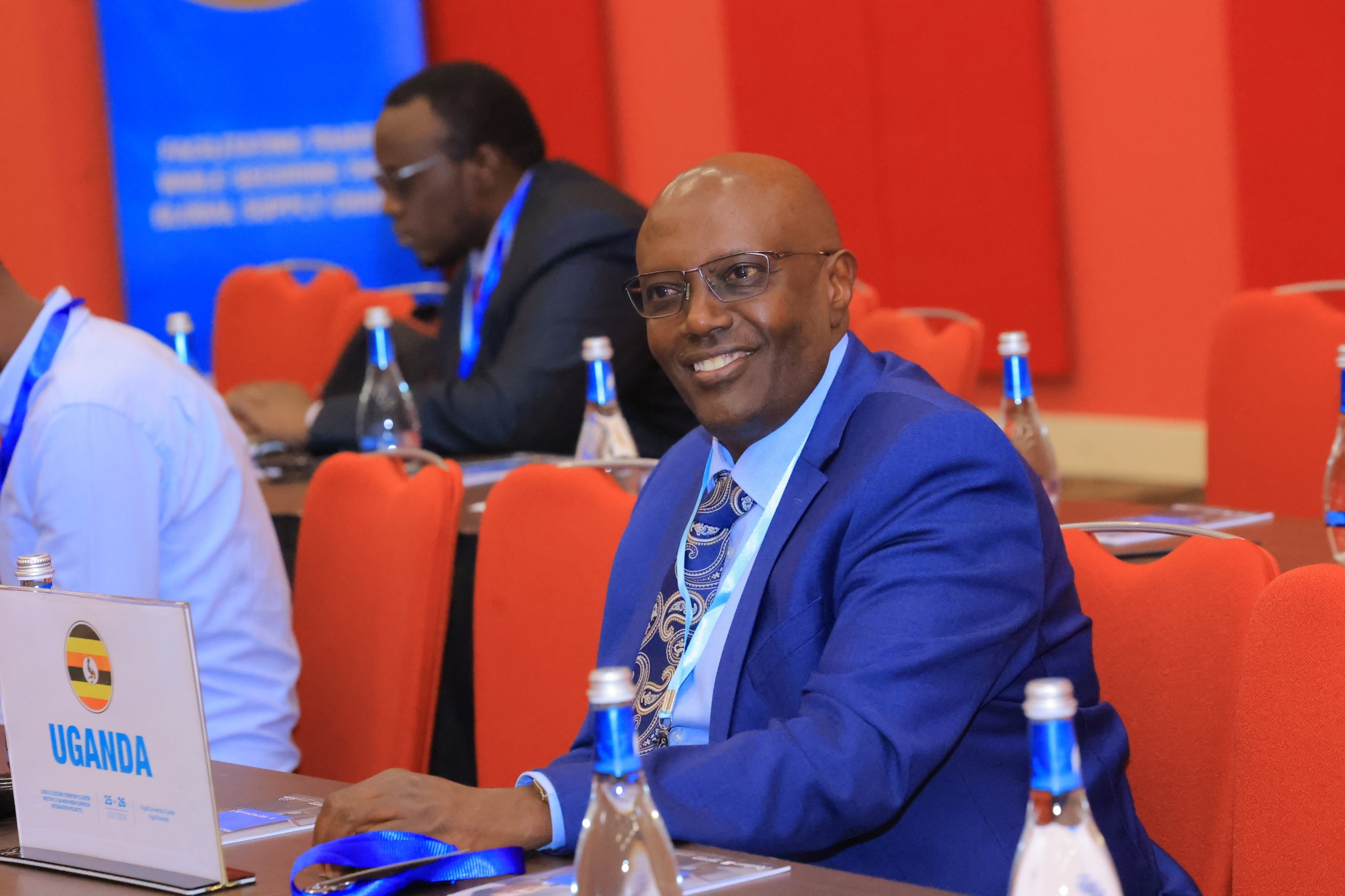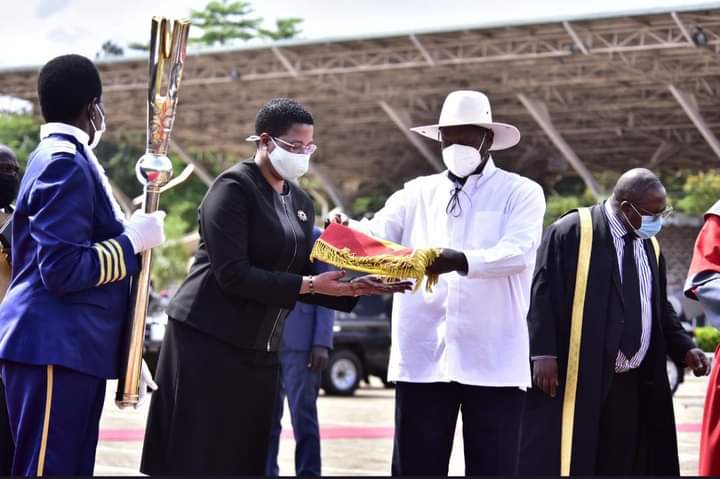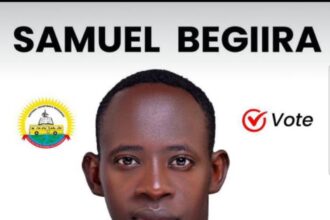Human rights organizations, including the Human Rights Centre Uganda (HRCU), Uganda Human Rights Commission, and the African Centre for Treatment and Rehabilitation of Torture Victims (ACTV), have issued a pressing call to action, highlighting severe and ongoing human rights violations across Uganda.
These groups, in partnership with other human rights defenders and Access to Justice Sub-Programme actors, have voiced urgent concerns over systemic abuses and ineffective justice mechanisms that continue to undermine the protection of fundamental freedoms and human rights throughout the country.
While presenting this joint statement during the press conference at Esella Hotel in Najjera, Margret Sekaggya the executive Director of HRCU commended the growing awareness among Ugandans regarding their rights and freedoms, citing recent advocacy efforts and initiatives aimed at improving justice through digitalization and alternative dispute resolution.
However, despite these positive strides the Human Rights defenders assert that serious and persistent issues remain. In the statement, she highlighted the ongoing human rights violations, including widespread torture, discrimination, and violence, that continue to plague various communities, particularly in the Northern regions affected by the Lord’s Resistance Army (LRA) conflict.
In particular, the organizations criticize the current justice system for its failings, including the controversial fusion of the Uganda Police Force and the Uganda People’s Defence Forces, which has led to reports of abuse and unfair trials.
The lack of resources and infrastructure, such as the absence of remand homes for juvenile offenders, further exacerbates these issues, leaving many without adequate legal protection or support. The pervasive corruption and bribery also undermine efforts to deliver justice and protect human rights.
The HRCU and its partners have made several key recommendations to address these ongoing challenges. They urge the government to fully adhere to constitutional and legal standards, enhance compliance with international human rights norms, and adopt a human rights-based approach in law enforcement and policy implementation.
They also called for a renewed focus from Parliament on human rights issues and increased support for civil society actors providing psycho-social support to victims. “These steps are crucial for tackling the persistent human rights abuses and ensuring that all Ugandans can enjoy their fundamental freedoms and rights,” she said.
Meanwhile, Uganda’s human rights record reveals significant challenges despite its geographical beauty. The country under the current leadership grapples with issues such as restricted freedom of expression, with media and opposition voices often facing suppression. LGBTQ+ individuals encounter severe discrimination and legal penalties, while reports of security force abuses and extrajudicial killings persist. Gender-based violence and systemic legal inefficiencies further exacerbate the situation.
Although the present government is making strides to address these concerns, its human rights landscape remains complex and contentious on the global stage.
Do you have a story in your community or an opinion to share with us: Email us at Submit an Article








